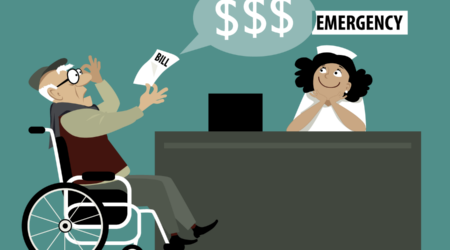How long does it take to get a dose of nature high enough to make people say they feel healthy and have a strong sense of well-being?
Precisely 120 minutes.
In a study of 20,000 people, a team led by Mathew White of the European Centre for Environment & Human Health at the University of Exeter, found that people who spent two hours a week in green spaces — local parks or other natural environments, either all at once or spaced over several visits — were substantially more likely to report good health and psychological well-being than those who don’t. Two hours was a hard boundary: The study, published in 2019, showed there were no benefits for people who didn’t meet that threshold.
The effects were robust, cutting across different occupations, ethnic groups, people from rich and poor areas, and people with chronic illnesses and disabilities.
“It’s well-known that getting outdoors in nature can be good for people’s health and well-being, but until now we’ve not been able to say how much is enough,” White said. “Two hours a week is hopefully a realistic target for many people, especially given that it can be spread over an entire week to get the benefit.”
The study by White and his colleagues is only the latest in a rapidly expanding area of research called ecopsychology that finds nature has robust effects on people’s health — physically, mentally, and emotionally.
Now in the Covid era, an article in the Wall Street Journal is asking: Will two hours in the park become the next 10,000 steps?
As people spend more time indoors, a mountain of scientific research says spending time in nature is critical to health and increases longevity. “There’s an urgent need emerging in science and at the gut level to increase the nature experience. This field is just exploding,” the Journal quotes Gretchen Daily, a professor of environmental science at Stanford University.
The benefits have been clear to scientists for some time, but the pandemic has made the matter more urgent. The physical and emotional toll the virus has taken, especially in urban areas with little green space, has galvanized doctors, researchers and others to tap into nature’s therapeutic effects.
Spending time in the woods—a practice the Japanese call “forest bathing“—is strongly linked to lower blood pressure, heart rate and stress hormones and decreased anxiety, depression and fatigue.
Scientists have repeatedly found that human anticancer natural killer cells significantly increase after walks in a forest. In one such study, published in 2010 in the Journal of Biological Regulators and Homeostatic Agents, the number and activity of killer cells increased in a group of twelve healthy men after two walks, each two hours long, in a one-day trip to a forest park in the Tokyo suburbs. So did anti-cancer proteins, according to the research led by Qing Li, an associate professor at the Nippon Medical School. Cortisol in the blood and adrenaline in the urine significantly decreased. The effects lasted at least seven days, the researchers found.
Time in a forest is linked to decreased inflammation, which has been implicated in chronic disease.











